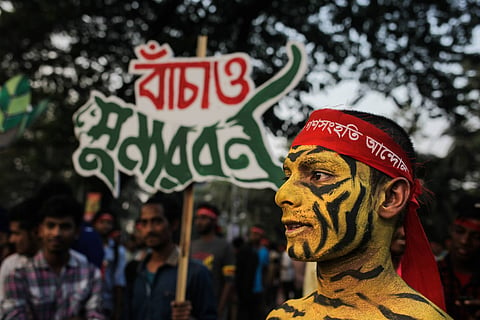Why the movement against Rampal plant in Bangladesh failed
On 17 December 2022, the Maitree Super Thermal Power Project within the Khulna division, Bangladesh's third-largest city, began commercial power production from the first of two planned generation units. This was a major landmark for a project of great significance for the Bangladesh government under Sheikh Hasina. The prime minister inaugurated the first unit a few months ago, alongside the Indian Prime Minister, Narendra Modi. For Modi, this was a diplomatic success, showcasing his government's ties to Dhaka. The plant is a joint venture between the Indian and Bangladeshi governments, and an Indian state-owned firm won the contract to build it. The event was a diplomatic triumph for Hasina too, but also something more. The Rampal plant, as it is widely known, is the culmination of a domestic political battle that Hasina's government fought and won against a movement bitterly opposed to the project.
The movement, led by various civil society organisations and local protest groups, reached its peak in early 2017, with multiple protests and strikes demanding that the project be scrapped. One of its main concerns, along with land dispossession, was the threat to the Sundarban, the unique mangrove ecosystem located a few kilometres downriver from the power plant. The movement's supporters included urban, middle-class groups such as the National Committee on Protection of Oil, Gas, Mineral Resources, Power and Ports, numerous environmentalist groups, and affiliates of left-leaning parties. Locally, in and around Khulna, the Rampal Bhumi Rokkha Sangram Committee initiated the resistance. Yet despite years of opposition, the Sheikh Hasina government pushed the project through.

